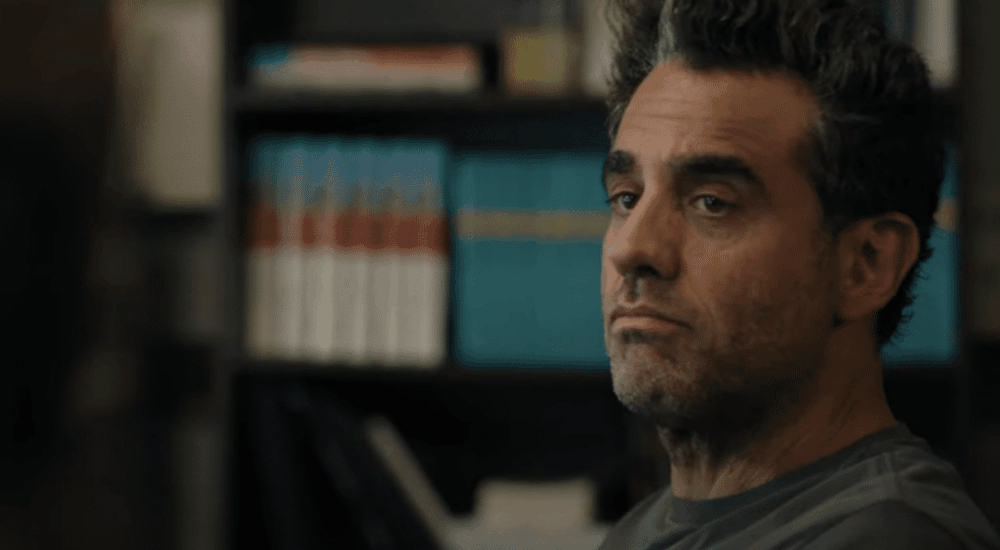Ezra did not premiere at Sundance, but it feels like it should have. It's so similar to any number of episodic family dramedies that it could be easily get confused for them. The film, written by Tony Spiridakis, feels stuck in the '90s. That's not surprising since his heyday was in that decade. A time where an indie could ride good word-of-mouth and a festival premiere to a solid return on investment. But he hasn't done much since then, and his script fails to put a fresh spin on the father-son issues the movie explores.
But Ezra does have two things that make it worth recommending: its excellent cast and its raw emotion. They really sell even the most maudlin moments of the film. I frequently wanted to roll my eyes, but the seasoned pros here make you feel the pat reconciliations and admissions feel - if not wholly authentic - moving.
Bobby Cannavale, one of the most reliable screen presences of the last two decades, stars as Max, a struggling stand-up comedian. Again, we've seen this character a dozen times before. He's separated from his wife (Rose Byrne) because he blew it one too many times. But of course he tries to win her back and be the best dad possible for his autistic son. William A. Fitzgerald plays the title role, and he's sharp and funny. Its his debut and I hope he gets many more chances to show his talents, especially in roles where autism is not the focus. While it has noble intentions, the film often stops dead in its tracks to have characters pontificate and clear up misconceptions. It's useful, but this is the wrong vehicle for it.
After a series of setbacks and run-ins with the law, Ezra is forced to attend a special needs school and medicated, while Max is denied visitation. This prompts Max to impulsively kidnap his son, and take him on a cross-country road trip. It's an irrational, illogical decision, but gives them a lot of time to bond and meet friends from Max's past. When the film finally slows down at a camp in Michigan, everyone gets a chance to breathe, and it's easily the best section of the movie. Fireside chats and dinners with a counselor played by Rainn Wilson feel authentic and funny. But the film doesn't let the father-son duo rest long. It's off to another stop and another life lesson.
If you've seen the likes of The Fundamentals of Caring or The Peanut Butter Falcon, you know exactly what to expect. This is a perfectly fine movie for families (give or take a few F-bombs). It's a little rough around the edges, but warm and gooey in the center. There's absolutely nothing wrong with that, and your parents will probably love it. But like Max, it has a lot of unrealized potential.

